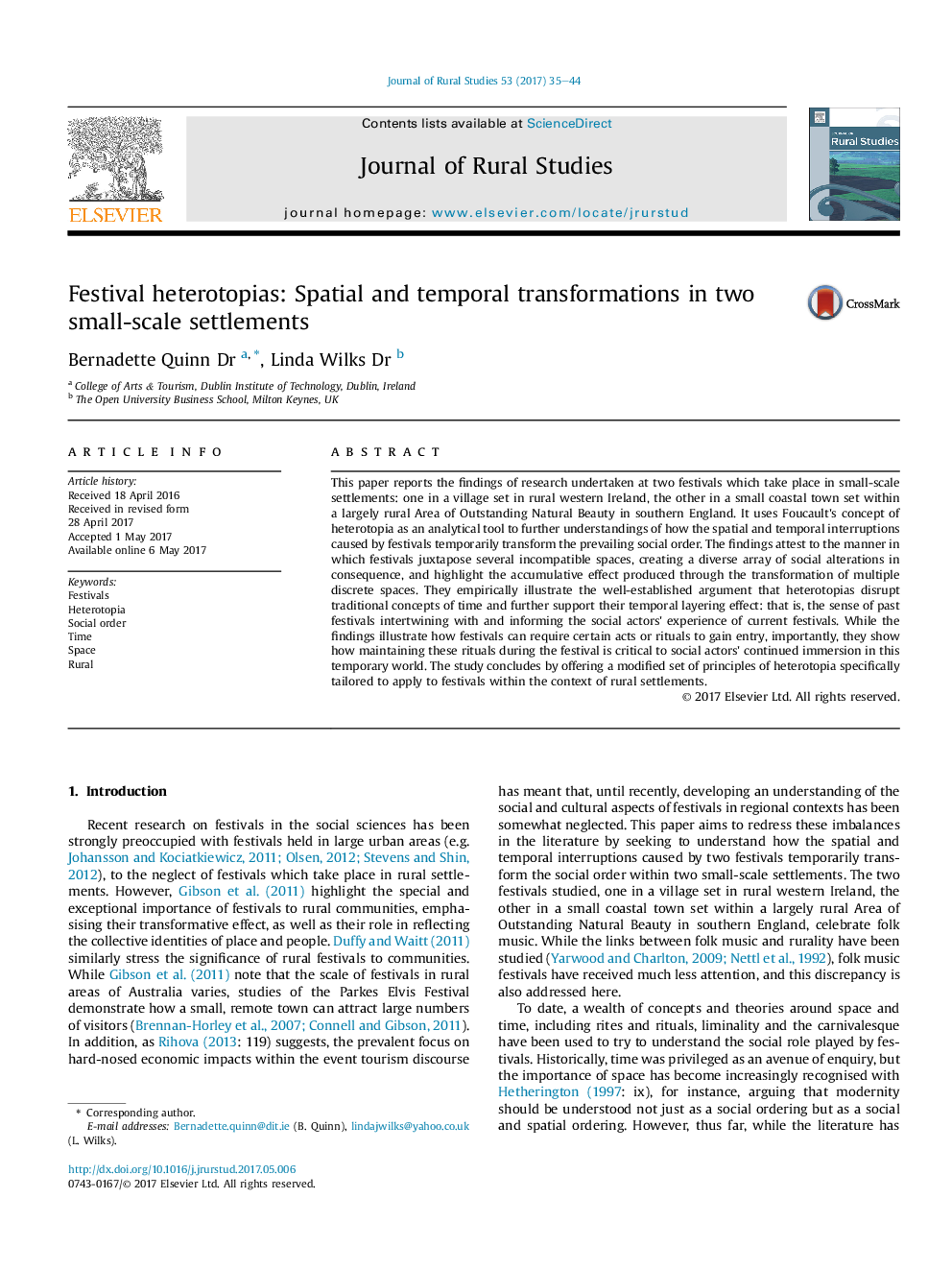| Article ID | Journal | Published Year | Pages | File Type |
|---|---|---|---|---|
| 6459981 | Journal of Rural Studies | 2017 | 10 Pages |
â¢Foucault's concept of heterotopia is applied to a study of festivals in small-scale settlements.â¢The study focuses on the social order in two festivals: one in rural Ireland, the other in a small town in England.â¢The findings highlight the transformative potential of festivals.â¢A set of principles of festival heterotopia are suggested as a useful modification of Foucault's heterotopia concept.
This paper reports the findings of research undertaken at two festivals which take place in small-scale settlements: one in a village set in rural western Ireland, the other in a small coastal town set within a largely rural Area of Outstanding Natural Beauty in southern England. It uses Foucault's concept of heterotopia as an analytical tool to further understandings of how the spatial and temporal interruptions caused by festivals temporarily transform the prevailing social order. The findings attest to the manner in which festivals juxtapose several incompatible spaces, creating a diverse array of social alterations in consequence, and highlight the accumulative effect produced through the transformation of multiple discrete spaces. They empirically illustrate the well-established argument that heterotopias disrupt traditional concepts of time and further support their temporal layering effect: that is, the sense of past festivals intertwining with and informing the social actors' experience of current festivals. While the findings illustrate how festivals can require certain acts or rituals to gain entry, importantly, they show how maintaining these rituals during the festival is critical to social actors' continued immersion in this temporary world. The study concludes by offering a modified set of principles of heterotopia specifically tailored to apply to festivals within the context of rural settlements.
